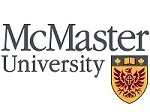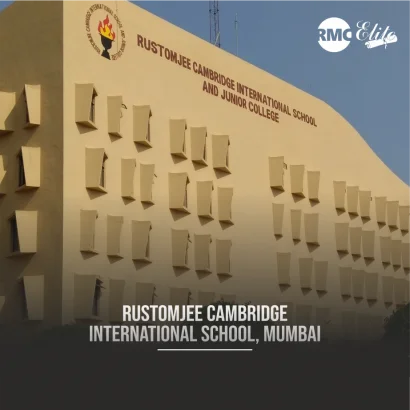
About UK
It may be a wonderful and enlightening experience to study in the UK. Some of the world’s oldest and most prominent institutions, including the institutions of Oxford, Cambridge, and Imperial College London, are located in the United Kingdom. Studying in the UK gives you access to outstanding teachers, facilities, academic resources, and interesting employment chances. International students must apply for a student visa through the UK Visas and Immigration website before they may start their studies in the UK. To make sure they meet all Study in UK requirements, students should research the study visa in UK requirements and the application process in advance.
In the UK, numerous undergraduate and graduate degree programs are available. Each university has its own admissions procedure and application requirements. Students should learn about the study in the UK admission process, the application procedure, and the deadlines of the universities they are considering attending. Overall, studying in the UK can offer a multitude of chances for academic and personal development, as well as interesting employment options.
Brief Overview of Studying in UK as an Indian Student
Being an Indian student studying in the UK might be a wonderful opportunity to get international education and experience a different culture. There are numerous services available to serve Indian students, who make up one of the largest international student populations in the UK.
Indian students need to apply for a student visa through the UK Visas and Immigration website to study in the UK. Evidence of financial assistance, English language ability, and acceptance into a UK university is required as part of the visa application procedure.
UK institutions, recognized for their teaching and research prowess, offer a wide variety of undergraduate and graduate degree programs to Indian students. For international students, several colleges provide scholarships and bursaries that can help with the cost of tuition and living expenses.
Universities in the UK provide a variety of extracurricular activities, clubs, and societies in addition to their academic programs, giving Indian students the chance to become engaged and make new friends. Indian student clubs are active in UK institutions and plan cultural events and provide a support system for the nation’s students.
Overall, studying in the UK can be a fulfilling and enlightening experience for Indian students, providing chances for professional development, academic success, and personal improvement.
Importance of Studying in UK
- World-renowned education system : The UK has a long-standing reputation for providing high-quality education. Its universities are among the best in the world, with a strong focus on research and innovation. A degree from a UK university is highly respected around the world and can help open doors to a range of career opportunities.
- Diverse range of courses : The UK offers a wide range of courses and qualifications, including undergraduate and postgraduate degrees, vocational courses, and professional development programs. Students can choose from a range of subjects and specializations to suit their interests and career goals.
- Cultural enrichment : Studying in the UK provides an opportunity for students to immerse themselves in a new culture and broaden their horizons. The UK has a rich history and cultural heritage, and students can explore its many museums, galleries, and historical sites. They can also experience the country's diverse food, music, and social scene.
- Language proficiency : English is the language of instruction in the UK, and studying in an English-speaking environment can help students improve their language skills. This can be an important advantage for students looking to pursue careers in a global marketplace.
- Professional development : Many UK universities offer opportunities for professional development, including internships, work placements, and industry collaborations. This can help students gain practical experience and develop the skills they need to succeed in their chosen field.
Benefits of Studying in UK
Studying in the UK offers many benefits for students, including access to world-renowned universities with a diverse range of courses and qualifications. The UK is rich in cultural heritage, providing opportunities for cultural enrichment, language development, and personal growth. Students can improve their language skills in an English-speaking environment, which can be an advantage for future career opportunities. Professional development opportunities, including internships and industry collaborations, are also available to help students gain practical experience and develop the skills they need to succeed in their chosen field. Finally, there are many scholarships and funding options available to help offset the costs of tuition, making it an accessible option for students from a range of backgrounds.
UK Education System
The education system in the UK is highly respected worldwide and has a long history of academic excellence. The system is divided into four main stages:
- Primary Education: This stage covers children from ages 5 to 11 and involves the teaching of basic subjects such as English, mathematics, science, and social studies.
- Secondary Education: Secondary education covers students from ages 11 to 16 and involves a more specialized curriculum, including core subjects such as English, mathematics, and science, as well as optional subjects such as languages, social sciences, and the arts.
- Further Education: This stage includes vocational and technical education, apprenticeships, and adult education. Students can pursue further education courses after completing secondary education, which can lead to vocational qualifications or higher education.
- Higher Education: This stage includes universities and colleges that offer undergraduate and postgraduate degrees. The UK has some of the world's top universities, offering a wide range of courses and qualifications, including bachelor's, master's, and doctoral degrees.
The UK education system places a strong emphasis on independent learning and critical thinking, with a focus on practical skills and research-based teaching.
Quality of Education in UK
The quality of education in the UK is highly regarded worldwide and is considered to be one of the best in the world. UK universities are among the most prestigious and highly-ranked institutions globally, and they offer a wide range of courses and qualifications across a variety of disciplines. The UK education system is highly respected due to its strong focus on research and innovation, with many universities at the forefront of cutting-edge research in their respective fields. The quality of education in the UK is maintained through a strong regulatory system, which ensures that universities and colleges are held to high standards. Regular inspections by independent bodies, such as the Quality Assurance Agency for Higher Education (QAA), ensure that universities and colleges are providing a high-quality education and meeting the required standards. Additionally, the UK education system places a strong emphasis on independent learning and critical thinking, with a focus on practical skills and research-based teaching. This approach helps students to develop the skills they need to succeed in their future careers, making UK education highly valued by employers worldwide.
Career Opportunities
Here are some career opportunities that studying in the UK can provide:
- Access to world-renowned universities with a diverse range of courses and qualifications.
- Exposure to a diverse range of industries and job opportunities through internships, industry collaborations, and career fairs.
- Opportunities to develop practical skills and gain hands-on experience through work placements and internships.
- Access to professional development opportunities, including leadership training, mentorship, and career coaching.
- Opportunities to build a global network of contacts, including fellow students, professors, and industry professionals.
- Improving language skills in an English-speaking environment, which can be an advantage for future career opportunities in multinational companies.
- Access to some of the world's top employers, including global corporations, research organizations, and start-ups.
- Access to funding and scholarships to support further education or career development.
- Opportunities to gain exposure to different cultures and global perspectives, which can be an advantage in an increasingly interconnected world.
Culture Exposure
- Exposure to a diverse range of students from around the world, allowing for a rich exchange of cultural experiences and perspectives.
- Opportunities to participate in cultural events and activities, including festivals, concerts, and exhibitions.
- Access to world-class museums, galleries, and historical landmarks, providing a deeper understanding of UK culture and history.
- Opportunities to explore different regions of the UK, each with its own unique cultural traditions and customs.
- Exposure to different languages and dialects, which can improve language skills and cultural awareness.
- Opportunities to participate in sports, clubs, and societies that reflect different cultural interests and backgrounds.
- Access to cuisine from around the world, with many restaurants and food markets offering a diverse range of international cuisine.
Eligibility and Admission Requirements for Indian Students
Indian students who are interested in studying in the UK must meet certain eligibility and admission requirements to be considered for admission. Typically, students must have a recognized academic qualification, such as a high school diploma or bachelor's degree, with good grades. In addition, students must demonstrate proficiency in the English language, which is typically measured by a TOEFL or IELTS score. Students must also submit a completed application form and supporting documents, including transcripts, personal statements, and letters of recommendation. Additional requirements may vary depending on the chosen university or program. Finally, students must meet the financial requirements to cover tuition fees and living expenses in the UK, as well as meet the requirements for a student visa.
Academic Requirements to Study in UK for Indian Students
Sure, here are the academic requirements to study in the UK for Indian students along with their explanations:
- High School Diploma or Equivalent: Indian students who wish to study in the UK must have completed a high school diploma or equivalent qualification recognized by the UK. This means having completed 12 years of formal education.
- Minimum GPA of 3.0: For undergraduate programs, students should have a minimum Grade Point Average (GPA) of 3.0 on a 4.0 scale. This means having a minimum of 60% or equivalent in the Indian education system.
- Bachelor's Degree with Good Grades: For postgraduate programs, students should have a relevant bachelor's degree with good grades. This typically means having a minimum of a 2:1 or equivalent in the UK grading system or 60% or equivalent in the Indian education system.
- English Language Proficiency: Indian students must demonstrate proficiency in English, which is typically measured by a TOEFL or IELTS score. The minimum required score varies depending on the university and program, but a score of 6.5 or 7.0 in the IELTS or 80 or 100 in the TOEFL is common.
- Additional Academic Requirements: Some universities or programs may have additional academic requirements, such as standardized test scores (e.g. SAT, ACT) or prerequisite courses. Students should check with their chosen university or program to determine if any additional requirements apply.
English Language proficiency requirements
The English language proficiency requirements for Indian students who wish to study in the UK vary depending on the university and program. However, the most commonly accepted tests to demonstrate proficiency in English are the International English Language Testing System (IELTS) and the Test of English as a Foreign Language (TOEFL). For undergraduate programs, a minimum score of 6.0 to 6.5 in the IELTS or 72 to 90 in the TOEFL iBT is typically required. For postgraduate programs, a minimum score of 6.5 to 7.0 in the IELTS or 90 to 100 in the TOEFL iBT is often required. Some universities may also accept other English language proficiency tests such as Pearson Test of English (PTE) or Cambridge English Advanced (CAE) in lieu of IELTS or TOEFL. It is important to check the specific English language proficiency requirements of the chosen university and program, as some universities may have higher or lower requirements than the standard scores mentioned above.
Application process and deadlines
The application process and deadlines for Indian students who wish to study in the UK vary depending on the university and program. However, here are some general steps and timelines that are typically involved in the application process:
- Research: Students should research universities and programs in the UK and determine which ones are best suited to their academic and personal goals.
- Meet admission requirements: Students must meet the admission requirements of the chosen university and program, which may include academic qualifications, English language proficiency, standardized test scores, and other requirements.
- Application submission: Students must submit their application online or by post, along with supporting documents such as transcripts, test scores, and a personal statement.
- Application fee: Some universities may require students to pay an application fee when submitting their application.
- Admission decision: The university will review the application and supporting documents and make an admission decision. This can take anywhere from a few weeks to several months.
- Visa application: If the student is accepted, they must apply for a student visa to study in the UK.
The application deadlines for undergraduate programs in the UK are usually between January and June, while postgraduate deadlines are typically between December and June. However, it is important to check the specific deadlines for the chosen university and program, as they may vary.
Visa Requirements and application process –
Indian students who wish to study in the UK will need to obtain a Tier 4 (General) student visa. Here are the requirements and application process for obtaining a UK student visa:
- Confirmation of acceptance for studies (CAS): Before applying for a student visa, the student must receive a Confirmation of Acceptance for Studies (CAS) from their chosen university.
- Financial requirements: The student must demonstrate that they have enough funds to cover their tuition fees and living expenses while studying in the UK.
- English language proficiency: The student must provide evidence of their English language proficiency, such as an IELTS or TOEFL score.
- Tuberculosis (TB) test: Students from certain countries, including India, must provide a certificate showing that they have been tested for TB.
- Visa application: The student must complete the online visa application form, pay the visa fee, and book an appointment at a visa application centre to provide their biometric information.
- Visa decision: The visa application will be processed, and the student will be notified of the visa decision. The processing time can vary, but typically takes 2-3 weeks.
Arrival in the UK: Once the student receives their visa, they can travel to the UK and must register with the police if their visa requires it.
Top Universities for Indian Student in UK and their Ranking
Here are some of the top universities in the UK that are popular among Indian students, along with their rankings according to the QS World University Rankings 2022:
- University of Oxford - Ranked #1
- University of Cambridge - Ranked #2
- Imperial College London - Ranked #8
- University of Edinburgh - Ranked #20
- University College London (UCL) - Ranked #10
- University of Manchester - Ranked #27
- King's College London - Ranked #35
- University of Bristol - Ranked #56
- University of Warwick - Ranked #62
- University of Glasgow - Ranked #73
Campus life and Facilities
The UK offers a vibrant campus life with state-of-the-art facilities that cater to students' needs. UK universities prioritize student wellbeing and provide a wide range of facilities, including modern libraries, research centres, sports facilities, accommodation, and student support services. Most universities in the UK have dedicated clubs and societies, which allow students to pursue their interests outside of the classroom and connect with like-minded individuals. Campus life in the UK is diverse, and students from different cultures and backgrounds are welcomed and supported. Universities also offer career services and provide opportunities for internships and work placements, allowing students to gain practical experience in their field of study. Overall, UK universities prioritize student satisfaction and strive to provide a comfortable, engaging and enriching campus life experience.
The best courses to study in UK for Indian students
The best courses to study in the UK for Indian students will depend on individual interests and career goals. However, here are some popular courses among Indian students:
- Business and Management: Business-related courses, such as MBA, finance, marketing, and accounting, are popular among Indian students, as they provide opportunities for global networking and career growth.
- Engineering: Engineering courses, such as computer science, electrical engineering, mechanical engineering, and civil engineering, are also popular among Indian students due to the high demand for skilled engineers in the job market.
- Law: Law courses, such as LLB or LLM, are also popular among Indian students, as they provide opportunities for global career growth and access to prestigious law firms.
- Medicine and Health Sciences: Medicine and health science courses, such as MBBS, nursing, public health, and dentistry, are also popular among Indian students due to the high demand for healthcare professionals.
- Data Science and Artificial Intelligence: With the growing demand for professionals in the field of data science and artificial intelligence, courses such as data analytics, artificial intelligence, and machine learning have become popular among Indian students.
Financial Aid and Scholarship for Indian Students
For Indian students who wish to study in the UK, there are various financial aid and scholarship options available to help cover the costs of tuition fees and living expenses. The UK government offers a range of scholarships for international students, including the Chevening Scholarship, which covers tuition fees, living expenses, and travel costs. Many universities in the UK also offer scholarships and bursaries to international students, based on academic merit, financial need, or a combination of both. For example, the University of Oxford offers scholarships for Indian students through the Rhodes Scholarship, while the University of Cambridge offers scholarships through the Gates Cambridge Scholarship. Additionally, external organizations such as the Commonwealth Scholarship Commission also provide scholarships for Indian students who wish to study in the UK. It is important for Indian students to research and apply for scholarships and financial aid options to make their dream of studying in the UK more achievable.
Types of Financial aid Available
Here are some types of financial aid available for Indian students who wish to study in the UK:
- Scholarships: These are monetary awards given to students based on academic merit, financial need, or other criteria. Scholarships can be offered by universities, the government, or external organizations.
- Bursaries: These are financial awards given to students based on financial need. Bursaries can be offered by universities, the government, or external organizations.
- Grants: Grants are financial awards that do not need to be repaid. They can be offered by the government, universities, or external organizations.
- Loans: Loans are financial aid that needs to be repaid with interest. They can be offered by the government or private lenders.
- Work-Study Programs: These programs allow students to work part-time while studying to help cover their living expenses.
- Assistantships: Assistantships provide students with financial support while also allowing them to gain work experience in their field of study. They are typically offered to graduate students and involve working as a teaching or research assistant.
Scholarships for Indian Students –
There are various scholarships available for Indian students who wish to study in the UK. Here are some popular scholarship programs:
- Chevening Scholarship: This is a UK government-funded scholarship that covers tuition fees, living expenses, and travel costs for Indian students. The scholarship is awarded based on academic merit and leadership potential.
- Commonwealth Scholarship: This scholarship is awarded by the Commonwealth Scholarship Commission and covers tuition fees, living expenses, and travel costs for Indian students. The scholarship is awarded based on academic merit.
- Rhodes Scholarship: This scholarship is awarded by the University of Oxford and covers tuition fees, living expenses, and travel costs for Indian students. The scholarship is awarded based on academic merit, leadership potential, and commitment to public service.
- Gates Cambridge Scholarship: This scholarship is awarded by the University of Cambridge and covers tuition fees, living expenses, and travel costs for Indian students. The scholarship is awarded based on academic merit, leadership potential, and commitment to improving the lives of others.
- Erasmus+ Scholarship: This scholarship is awarded by the European Union and covers tuition fees, living expenses, and travel costs for Indian students who wish to study in Europe.
- Inlaks Scholarship: This scholarship is awarded by the Inlaks Shivdasani Foundation and covers tuition fees, living expenses, and travel costs for Indian students who wish to pursue postgraduate studies in the UK, US, or Europe.
Living in UK as an Indian Student
Living in the UK as an Indian student can be an enriching experience. The country has a diverse culture, and Indian students can find a community of fellow Indians to connect with. The standard of living in the UK is high, and the country has a good public transport system, making it easy for students to get around. However, the cost of living in the UK can be quite high, and students need to budget accordingly. Students can opt to live on-campus or off-campus, and there are several options available. The UK has strict laws governing work for international students, and students need to ensure they have the appropriate visa and work permits if they wish to work while studying.
Accommodation options –
Accommodation options for international students in the UK include university halls of residence, private halls of residence, and shared accommodation. University halls of residence are typically the most convenient option and offer a private room with shared facilities. Private halls of residence offer more modern facilities but are often more expensive. Students can also choose to rent a room in a shared house or flat, which can be more affordable but may require more effort to find and maintain. It's important for students to consider their budget, location, and preferences when choosing accommodation in the UK.
Cost of living –
The cost of living in the UK can vary depending on the region and lifestyle choices of the student. Here are some estimated costs of living for international students in the UK:
- Accommodation: The cost of accommodation can vary depending on the location and type of accommodation. On-campus accommodation can cost between £100-£200 per week, while private accommodation can cost between £150-£250 per week.
- Food and groceries: A weekly food budget for a student can be around £30-£50 per week, but this can vary based on individual preferences and dietary restrictions.
- Transportation: The cost of transportation can vary depending on the city and mode of transport. Monthly public transport passes can cost between £50-£100 per month.
- Miscellaneous expenses: This can include expenses like clothing, entertainment, and personal care items. This can add up to £100-£150 per month.
Overall, the cost of living in the UK can be quite high for international students. It's important for students to budget accordingly and look for ways to save money, such as cooking their meals at home and using public transportation.
Food and dining options –
The UK offers a diverse range of food and dining options to suit different tastes and preferences. Here are some popular food options available for international students in the UK:
- British cuisine: Traditional British cuisine includes dishes such as fish and chips, bangers and mash, and Sunday roast. These dishes can be found at most pubs and restaurants in the UK.
- International cuisine: The UK is a multicultural country, and as a result, there is a wide variety of international cuisine available. Popular options include Indian, Chinese, Italian, and Mexican cuisine.
- Vegetarian and vegan options: The UK is known for its vegetarian and vegan options, with many restaurants and cafes offering a range of plant-based dishes.
- Cafes and fast food: There are also plenty of cafes and fast-food options available in the UK, including popular chains such as Starbucks, Costa Coffee, and McDonald's.
International students can choose to cook their meals at home or eat out at restaurants and cafes. It's important to consider dietary restrictions and budget when choosing food and dining options in the UK.
Top of Form
Visa Transportation and Travel –
International students planning to study in the UK will need to obtain a student visa before they can travel to the country. The visa application process can be complex, and it's important to start the process as early as possible.
In addition to obtaining a visa, students will also need to arrange transportation and travel to the UK. The most common modes of transportation are by air or by sea, with many international airlines offering flights to major airports in the UK.
Once in the UK, students can use a variety of transportation options to get around, including buses, trains, and taxis. Many universities also offer shuttle services to and from campus.
It's important to plan and budget for transportation and travel expenses in advance, as they can be a significant cost for international students. Students should also be aware of any travel restrictions or requirements related to the COVID-19 pandemic, and follow all safety guidelines when traveling to and within the UK.
Working while study in UK
International students are allowed to work while studying in the UK, but there are certain restrictions and limitations on the number of hours they can work. Here are some important points to keep in mind regarding working while studying in the UK:
- Students can work up to 20 hours per week during term time and full-time during holidays.
- Students on a Tier 4 student visa can work in part-time jobs, internships, or placements that are directly related to their course of study.
- Students can work in any job if they are studying at a publicly funded institution or a higher education institution with a track record of compliance.
- The minimum wage in the UK is £8.91 per hour for workers aged 23 and over.
- It's important to note that working while studying is not a substitute for funding your education and living expenses, and it's important to balance work and study commitments.
International students should also be aware of the tax and national insurance requirements related to working in the UK and seek advice from their university's careers service or international student office for guidance.
Employment and job opportunities after graduation
The UK offers a wide range of job opportunities for international students after graduation. The UK has a robust economy and is home to some of the world's leading companies and industries, including finance, healthcare, education, and technology.
International students who have completed their degree from a UK university can apply for a post-study work visa called the Graduate Route. This visa allows students to stay in the UK for up to two years to work, study or seek employment opportunities. The Graduate Route is open to all international students who have completed a degree at undergraduate or postgraduate level from a UK higher education institution.
The UK government also offers several schemes to help international students find employment after graduation, such as the UK Visas and Immigration Entrepreneurship and Graduate Entrepreneurship Visa. These schemes are designed to help graduates start their own businesses in the UK.
Additionally, universities in the UK have strong links with employers, which can help students to secure internships, work placements and networking opportunities while studying. This can be beneficial for students as it can give them valuable work experience and increase their chances of finding employment after graduation.
Post-study work visa
The post-study work visa, officially known as the Graduate Route, is a visa option for international students who have completed a degree at an undergraduate or postgraduate level in the UK. The Graduate Route visa allows students to stay and work in the UK for up to two years after completing their degree.
To be eligible for the Graduate Route, students must have completed a degree from a UK higher education institution and must have a valid Tier 4 or Student visa at the time of application. Students must also have a valid Confirmation of Acceptance for Studies (CAS) from a UK institution, meet the English language requirements and have sufficient funds to support themselves during their stay in the UK.
The Graduate Route visa allows students to work in any sector and at any level in the UK. Students can switch to other visa categories during their two-year stay if they meet the eligibility criteria. The Graduate Route visa is a great opportunity for international students to gain valuable work experience and potentially secure employment in the UK after completing their studies.
Job market in the UK for Indian students
The job market in the UK is competitive, but there are many opportunities for Indian students who have completed their studies in the country. The UK is home to a diverse range of industries, including finance, technology, healthcare, creative industries, and more. Many UK companies actively recruit international students, including Indian students, as they bring a diverse range of skills and perspectives to the workforce.
Indian students who have completed their studies in the UK may be eligible for the post-study work visa, which allows them to stay and work in the UK for up to two years after completing their degree. This can be a great opportunity for Indian students to gain work experience in the UK, build their professional networks, and potentially secure employment in the country.
It is important for Indian students to research the job market in their chosen field and tailor their job search accordingly. Networking, building professional connections, and gaining relevant work experience can also be beneficial in securing employment in the UK.
Tips for finding employment after graduation
Here are some tips for finding employment after graduation in the UK:
- Start early: Begin your job search as early as possible, even before graduation.
- Research your industry: Understand the job market and requirements for your field.
- Build a professional network: Attend career fairs, networking events, and job seminars to make connections and gain insight into job opportunities.
- Gain relevant work experience: Consider internships, part-time jobs, or volunteering to gain experience in your field.
- Tailor your CV and cover letter: Customize your application materials for each job you apply for.
- Utilize online job boards: Check out online job boards such as LinkedIn, indeed, and Glassdoor to find job opportunities.
- Seek guidance from career services: Many universities offer career services to students and alumni, providing resources such as career counselling, job search assistance, and resume review.
- Be patient and persistent: Finding a job can take time, so stay positive and persistent in your job search.
Admission Process to Study In UK for Indian Students
The admission process to study in the UK for Indian students generally involves the following steps:
- Choose a course and university: Indian students should research universities and courses in the UK and choose the best fit based on their academic interests and career goals.
- Check eligibility requirements: Students should check the eligibility requirements for the chosen course and university, including academic qualifications, English language proficiency, and any other specific requirements.
- Apply to the university: Students should submit their application online or by post, along with supporting documents such as transcripts, test scores, and a personal statement.
- Receive an offer: If the student meets the eligibility criteria and the application is successful, they will receive an offer of admission from the university.
- Accept the offer: Once the student receives an offer of admission, they must decide whether to accept it and confirm their place by paying a deposit.
- Apply for a student visa: Students must apply for a Tier 4 (General) student visa in order to study in the UK.
- Arrive in the UK: Once the student receives their visa, they can travel to the UK and start their studies.
Why Take Admission Through RMC Elite Consultancy?
An education consultancy like RMC Elite Consultancy can provide valuable assistance to students who are interested in studying in the UK. They can help you with the entire admission process, including university selection, application submission, and visa processing. Additionally, they can offer guidance on scholarships, financial aid, and other funding options to help you finance your studies. An education consultancy can also provide personalized guidance on course selection and career options, helping you to make the best decisions for your future. They can also provide advice on accommodation, travel arrangements, and other logistics related to studying in the UK.
RMC Elite constantly assists students with entrance, scholarship availability, placements, and other services.
- Counseling and mentoring: The experienced staff at RMC Elite advises you on the finest colleges, top courses to study in the UK, scholarship opportunities, and more.
- College profiles: We frequently provide thorough information about individual schools and universities, such as academic programs, campus culture, student life, and admission data, on our website. This information can assist students in gaining a better understanding of what a certain school is like and whether it is a suitable fit for them.
- College search tools: The RMC Elite website includes college search tools that allow students to filter and compare institutions based on factors including location, size, majors, pricing, and entrance requirements. These tools can assist students in narrowing their options and locating colleges that fit their specific requirements.
- Test Planning: The team is dedicated to assisting you in preparing for international language exams and clearing screening tests such as TOEFL, IELTS, and others using the most up-to-date practice and curriculums.
- The Application Procedure: RMC Elite prioritizes all processes, including profile evaluation, application form completion, admissions locking, Visa preparation, and much more.
Overall, working with an education consultancy like RMC Elite Consultancy can make the admission process less stressful and more streamlined, helping you to achieve your academic and career goals.















